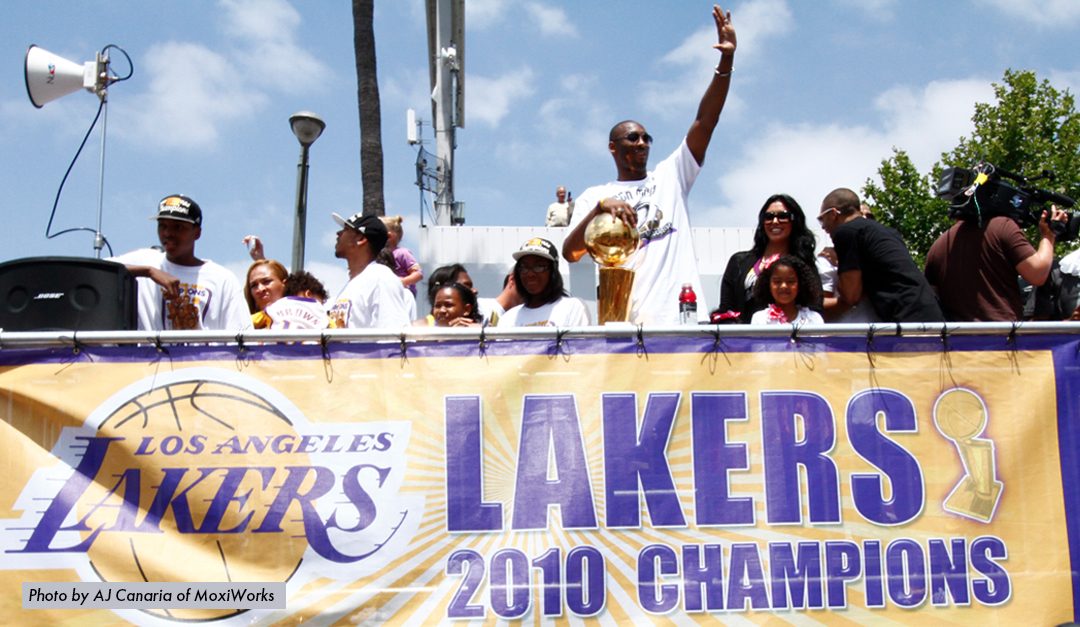The headquarters for Berkshire Hathaway HomeServices is in Irvine, California, right in the heart of Orange County, and while on the topic of Orange County, Tuesday August 24 was declared “Kobe Bryant Day” in O.C. and beyond.
Kobe and his Mamba Mentality (a mentality to attack what’s in front of you without fear but with passion and purpose) instill so many important lessons about leadership.
Here are a few things we can learn from Kobe’s Mamba Mentality mindset:
He was a fierce competitor. Even during Kobe’s high school years playing at Lower Merion in Ardmore, Pennsylvania, he would show up to practice at 5 a.m. and stay on the court for a solid two hours. He’d also play one-on-one games with his teammates… to 100 points. (During his worst match-up, Business Insider says he still won 100-12.)
He never let anything—even injury—sideline him in the execution of his goals. During his years as a Lakers player, Kobe was always the first player in the gym, even when he was hurt. He once played left-handed because he had an injury to his right hand and was determined not to let it keep him off the court.
He combined physical practice with mental motivation. He was a proponent of the mental aspect of the game; former Lakers teammate Shaquille O’Neill wrote in his book “Shaq Uncut” that Kobe would often practice dribbling and shooting without a ball and exhibit the same physical intensity as if he had a ball in his hands.
He was a student of continuous improvement. According to Sports Illustrated, in 2008 he requested Nike shave a few millimeters off the soles of his sneakers to get “a hundredth of a second better reaction time.”
He believed in authenticity and the power of personal storytelling. “Be yourself,” he once said to Bloomberg. “That’s it. Be you. There’s no gimmick. You don’t have to contrive anything. Who are you? Where are you today? What is your story? And all you’re doing is communicating that story to the public.”
He was committed to accountability in leadership. Speaking with NBA TV, Kobe said in February of 2015: “If you are going to be a leader, you are not going to please everybody. You have to hold people accountable, even if you have that moment of being uncomfortable.” Kobe reminded us that you need to be professional, respectful and compassionate.
He programmed the non-conscious portion of his brain to reject failure. To Showtime, Kobe explained: “When we are saying, ‘This cannot be accomplished, this cannot be done,’ then we are short-changing ourselves. My brain process failure. It will not process failure. Because if I have to sit there and face myself and tell myself, ‘You’re a failure,’ I think that is…almost worse than death.”
So, what’s the message? One of the most memorable characteristics Kobe possessed was his ability to work hard. He was gifted, yes, but he was the hardest working athlete on the court (and his teammates acknowledged it). He also encouraged that same relentless drive in those around him. Kobe taught us leadership greatness is not measured by your accomplishments, but rather by the accomplishments you inspire in others. Above all else, that’s the gift Kobe passes on to the world, and it’s one that will allow his enduring legacy to live on forever.
This article is adapted from Blefari’s weekly, company-wide “Thoughts on Leadership” column from HomeServices of America.




